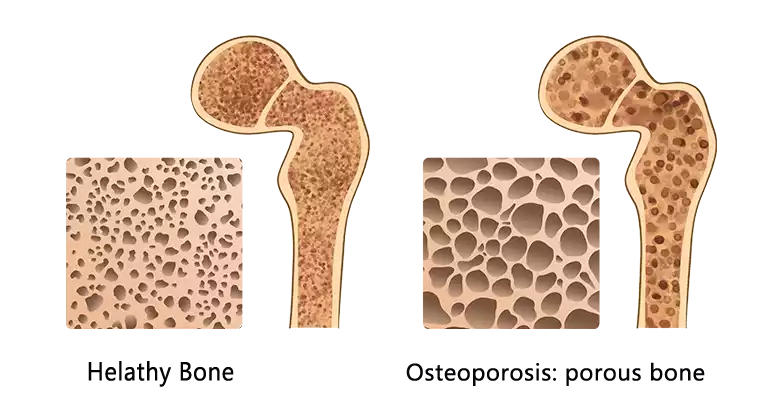
Bone is a living tissue composed of collagen and hydroxyapatite. Bone tissue is not static, it is in a dynamic equilibrium: the production of collagen and minerals is always accompanied by their breakdown. As we age, the new collagen and minerals production does not catch up with their breakdown, which leads to a decrease in bone density and sometimes even becomes porous. Osteoporosis (low bone density) is a disease that affects many people around the world, especially the elderly, whose bone becomes weak and brittle.
The use of hydrolyzed gelatin or collagen peptides to treat osteoporosis is a new approach. Recent studies have shown that peptides below 3000 DA can be absorbed directly by the digestive tract and accumulate near bone to stimulate the regeneration of bone cells. Compared to traditional methods, it not only enables the bones to absorb more calcium, but also increases its collagen content, which makes the bone hard while enhancing its elasticity to resist fracture.
In one study, postmenopausal women consumed a daily supplement containing 5 grams of collagen peptides, 500 mg of calcium and 200 UI vitamin D for 12 months. The group taking collagen peptides had significantly reduced bone density loss compared to the women treated with calcium and vitamin D only.
Compared to the traditional therapy of taking hormones, calcium and vitamin D. There were virtually no side effects from taking collagen, calcium and vitamin D. The long-term collagen ingestion has additional benefits: it can make skin appear younger with fewer wrinkles; it makes hair sleek and it promotes joint cartilage growth to relieve arthritis.